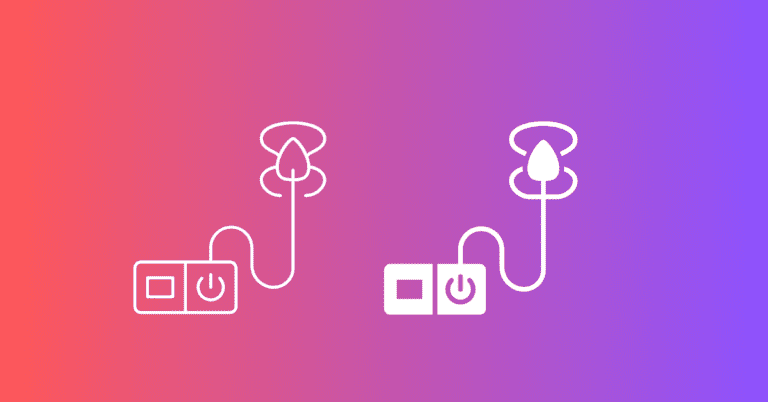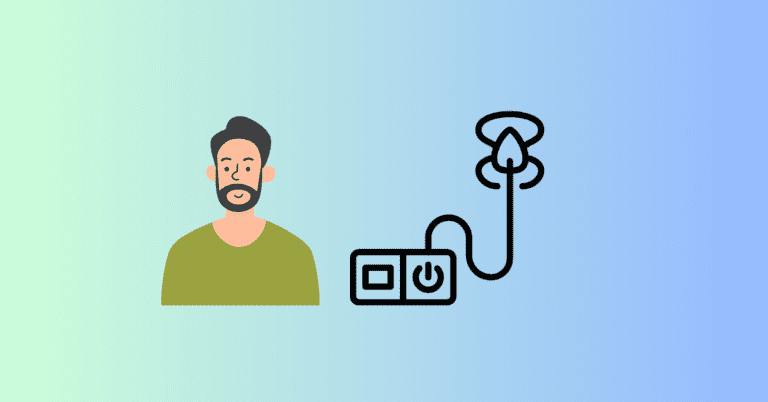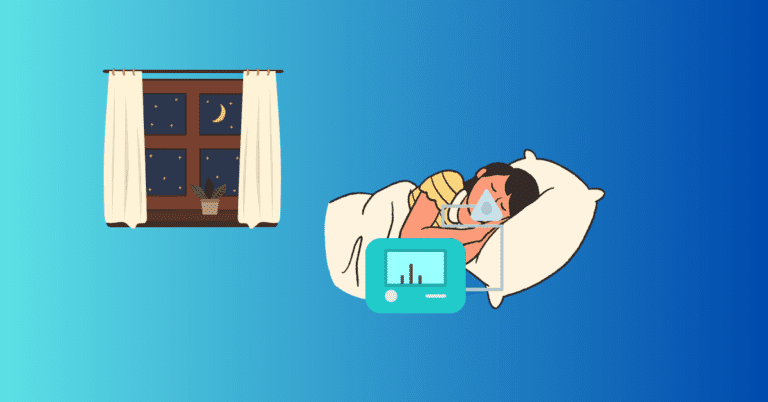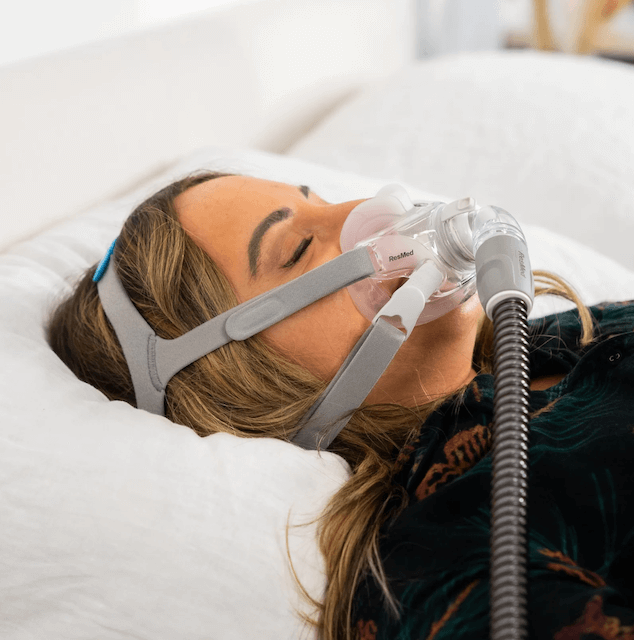Best CPAP Mask: Your Complete Guide to Comfort and Fit
Jeremy Smith is a long-term CPAP user and sleep apnea advocate. After being diagnosed with severe obstructive sleep apnea, he created ByJeremySmith.com to help others navigate CPAP therapy through personal stories, gear reviews, and practical advice.
“This post contains affiliate links. I may earn a commission if you buy through these links at no extra cost to you. Read my Disclaimer for more details.”
Welcome to my best CPAP mask round-up!
If you’re like me and have been diagnosed with sleep apnea, then you have to find the right CPAP mask to get effective therapy.
I knew I needed a full-face mask right away because I often sleep with my mouth open. Your requirements may be different.
That is why I have created this guide.
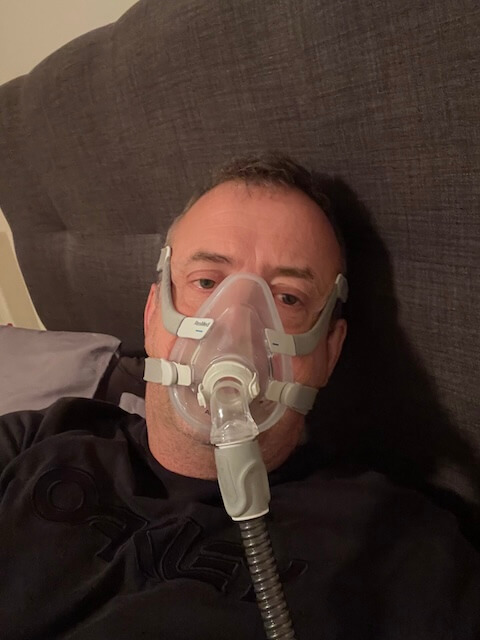
Your doctor can help you select a CPAP machine and mask suitable for your diagnosis and needs. However, there are many combinations of masks with different customizable options available.
So, if you’re looking for the best CPAP mask for your lifestyle and pressure settings, you’re in the right place. In this guide,
I’ll walk you through everything you need to know, including mask types, who they’re best for, and detailed reviews of the top masks available.
Best CPAP Masks: Reviewed and Ranked
Drawing inspiration from both user reviews and my own personal experience, here’s a closer look at the top-performing masks right now:
🔹 Best Overall: ResMed AirTouch F20 Full Face Mask
Yes, it’s the mask I use and love. The F20 model has been serving me for nearly 10 years now, and I love it.
- Ideal for: High-pressure users, people who need a soft cushion, mouth breathers
- What I love: The memory foam cushion—feels like a cloud
- Downside: Not great for stomach sleepers
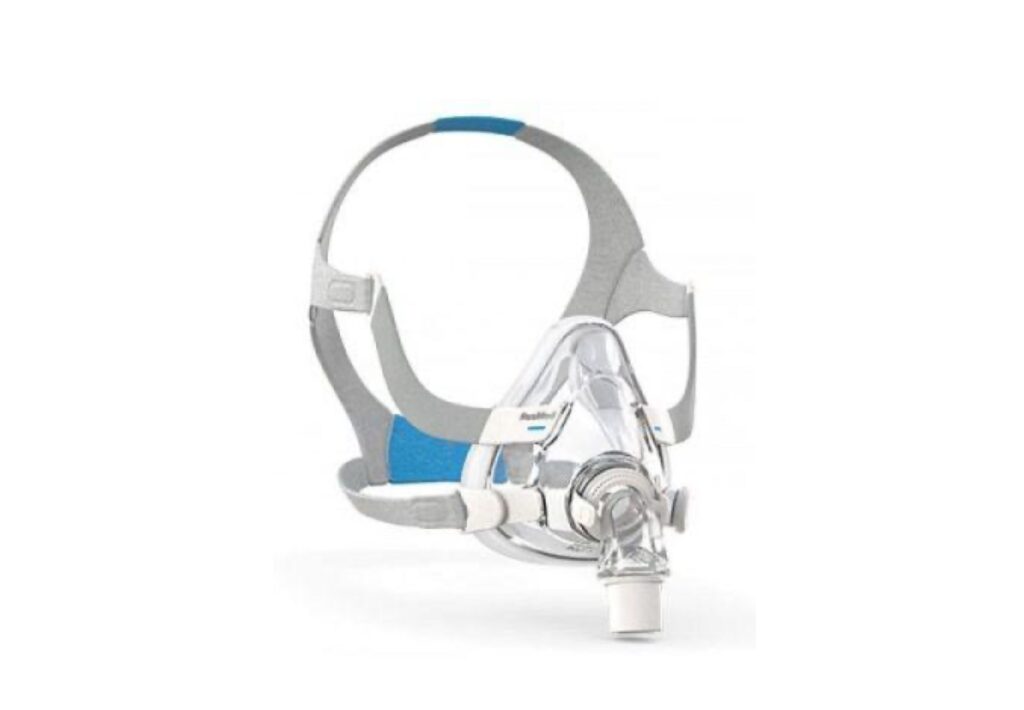
🔹 Best for First-Time Users: Philips DreamWear Full Face Mask
- Ideal for: People new to therapy or those unsure about fit
- What I love: The “under the nose” design keeps things open and comfortable
- Downside: There is a slight learning curve with the top-of-head hose connection
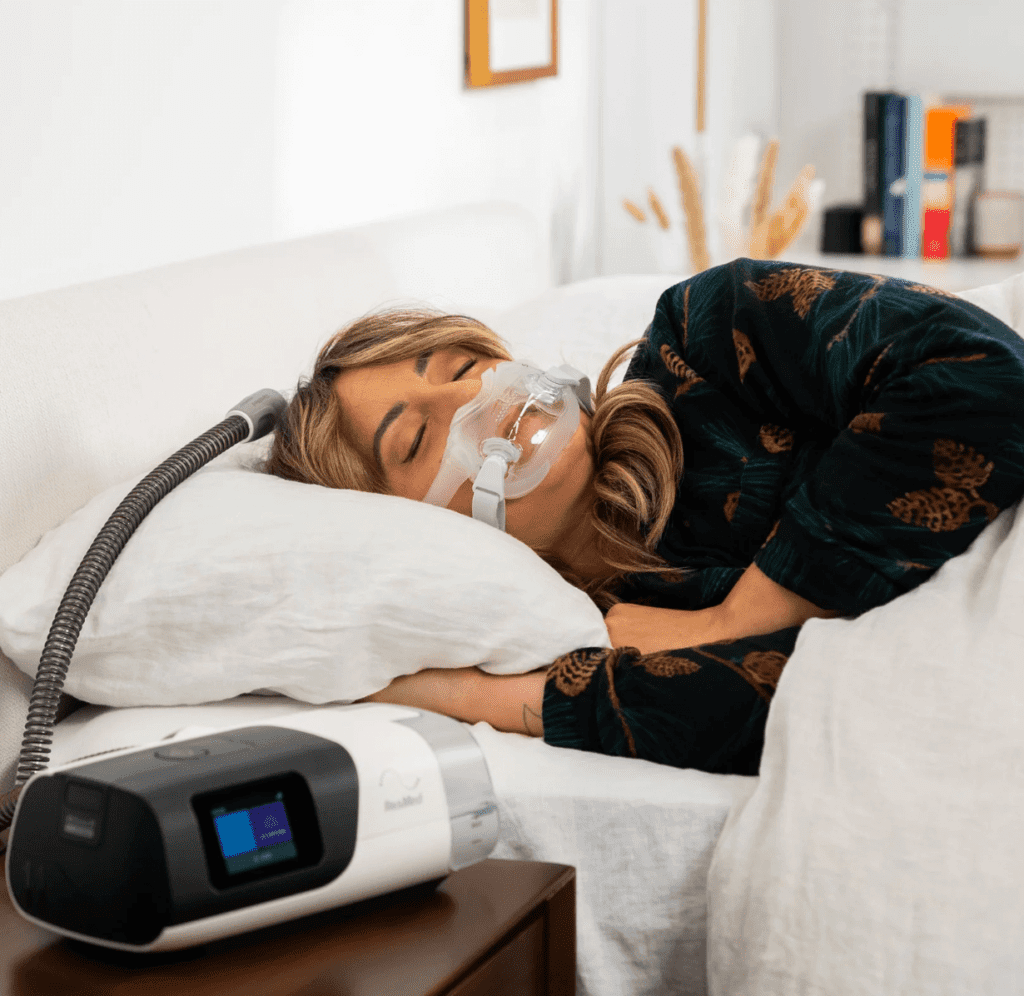
It’s a great starter option. I’ve recommended this to three friends who are still using it.
🔹 Best Nasal Mask: ResMed AirFit N20
- Ideal for: Side sleepers, nose breathers
- What I love: Magnetic clips, soft cushioning, reliable seal
- Downside: Not for mouth breathers
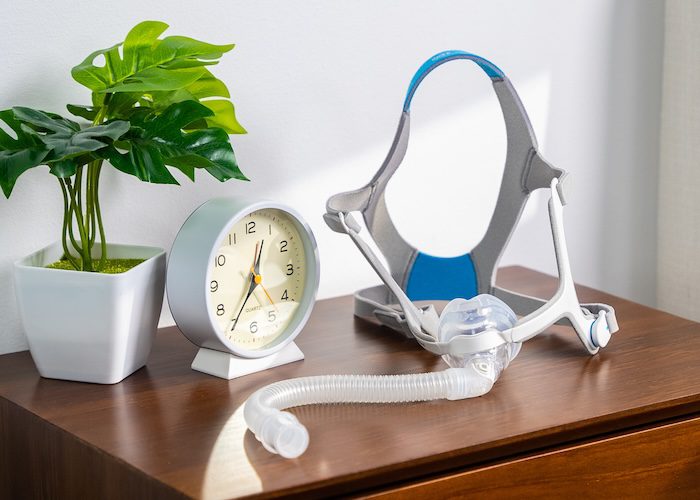
This one’s a favorite for a reason—check the full-list of top nasal masks.
🔹 Best Nasal Pillow Mask: ResMed AirFit P10
- Ideal for: Minimalists, low-pressure users, and travelers
- What I love: It’s ultra-quiet and feather-light
- Downside: Not for high pressures or mouth breathing

If you’re feeling claustrophobic or tired of bulky gear, this could be your next best friend.
This one changed my sleep. I used to wake up from pressure leaks around my mouth. This fixed it.
What Is a CPAP Mask and Why It Matters
Your CPAP mask connects your face to your CPAP machine via a hose. But it’s not just a piece of equipment—it’s your lifeline to restful sleep.
Here’s why the right CPAP mask matters:
- Prevents air leaks that reduce therapy effectiveness
- Reduces irritation or facial discomfort
- Supports your preferred sleep position
- Enhances compliance (the #1 issue with CPAP users)
Let’s break down the different types of masks.
Types of CPAP Masks: Which One Fits You Best?
👉🏼 Check out my full breakdown of CPAP mask types here, but underneath is the short version:
1. Nasal Masks
These cover the nose and are great for people who:
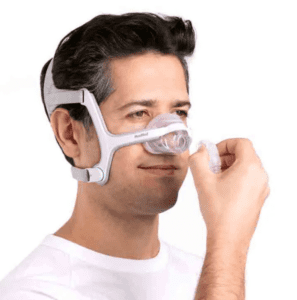
- Breathe primarily through the nose
- Need medium to high-pressure settings
- Are side or back sleepers
Popular pick: ResMed AirFit N20
Check out: Best Nasal Masks
2. Full-Face Masks
These cover both the nose and mouth and are ideal if you:
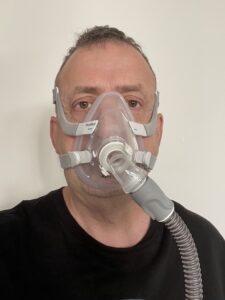
- Breathe through your mouth
- Suffer from nasal congestion
- Need high-pressure therapy
Top pick: ResMed AirTouch F20. This is the very mask I use, and it’s superb.
Check out: Best Full-Face Masks
3. Nasal Pillow Masks
Lightweight and minimal contact, great for:
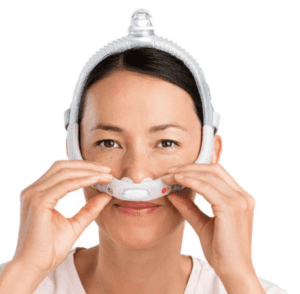
- Low to moderate-pressure settings
- Side sleepers and those with claustrophobia
- People with facial hair
Popular pick: ResMed AirFit P30
Check out: Best Nasal Masks
How to Choose the Right CPAP Mask
There’s no one-size-fits-all. Your best mask depends on:
- Breathing pattern: Mouth vs nose
- Pressure level: High pressure requires a better seal
- Facial structure: Some masks fit rounder faces better, others suit narrow faces
- Sleep position: Side, back, or stomach sleeping makes a big difference
👉🏼 Want help choosing? Here’s my guide on how to choose a CPAP mask.
Real-Life CPAP Comfort Hacks
✅ Use Mask Liners
They reduce skin irritation and help with leaks. I’ve tested a dozen and reviewed the best CPAP mask liners here.
✅ Get a CPAP Pillow
Regular pillows press against your mask. A CPAP pillow has cutouts so you can sleep on your side without breaking the seal.
✅ Clean Your Mask
A dirty mask = bacteria and smells. Don’t let that ruin your therapy. Follow my CPAP cleaning guide for daily and weekly tips.
Mask Troubleshooting: Fixing Common Issues
Even the best mask can cause issues if something’s off. Let’s solve them:
❌ Problem: Mask Leaks
- Solution: Adjust the headgear or try a different size
- Bonus Tip: Add a liner for a better seal
❌ Problem: Red Marks or Skin Sores
- Solution: Loosen the straps or switch to a mask with softer materials
- Consider: Memory foam or nasal pillows
❌ Problem: Dry Mouth or Nose
- Solution: Use a heated humidifier
- Upgrade: Switch to a full-face mask or add a chin strap
The CPAP Machine Connection
Your mask has to work with your CPAP machine. Some older models aren’t compatible with newer mask features like magnetic clips or heated tubing.
If you need help choosing a machine, here’s my roundup of the best CPAP machines. Not sure if you need a prescription? I answer that in detail here.
Maintaining Your CPAP Setup
Yes, your mask has a shelf life. It might be time for a replacement if you notice leaks or discomfort.
- Mask cushions (every 30 days)
- Headgear (every 6 months)
- Tubing (every 3 months)
👉🏼 Here is my complete CPAP Mask Replacement Schedule
FAQs About CPAP Masks
Q: How often should I replace my CPAP mask?
A: Most cushions should be replaced every 30 days. Full masks every 3–6 months depending on wear.
Q: Can I use insurance to cover CPAP masks?
A: Often, yes—especially if you’re going through a sleep clinic or durable medical equipment (DME) provider.
Q: Do I need a full-face mask?
A: Only if you’re a mouth breather, have frequent nasal congestion, or need high-pressure settings.
Final Thoughts: Find the Best CPAP Mask for Your Sleep Style
The right mask can be a game-changer. It was for me. I went from dreading my therapy to looking forward to sleep. So don’t settle for something that doesn’t fit or feel right.
Start by choosing the mask I recommended above. Consider your breathing style and sleep position, and don’t forget to explore comfort upgrades like pillows and liners.
You deserve restful, uninterrupted sleep—and the right mask is your ticket there.
Disclaimer: The content on this blog is for informational and educational purposes only and is not a substitute for professional medical advice. Always speak with your doctor or sleep specialist before starting, stopping, or changing any treatment or therapy related to sleep apnea or CPAP use.
